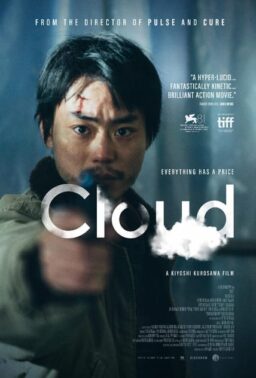CANNES, France–“Shoot the distributors.” That was Alan Cumming’s helpful suggestion as eight American directors debated the sorry sight of independent film distribution here Wednesday, at the annual American Directors Panel at the Variety Pavilion. The big studios monopolize thousands of multiplex screens with movies aimed at teenage boys, and more inventive films for adults get shoved aside.
Also suggested: Establish chains of indie boutique theaters that would use digital projection to show movies beamed down by satellite. But the cost of film and prints is a minor part of overhead, director Wayne Wang argued, when compared to the costs of marketing and advertising. The panelists were depressed about gridlock at the box office, where the lowest common denominator rules, and more challenging movies are brushed aside by distributors who care more about volume than quality.
I’ve been emceeing this panel for 10 years or so, and never sensed such sadness on the part of directors who have made good films and now find it difficult to get them to American audiences. “We were helped because we shot with a cast of close friends, and their names will help get us bookings,” said Jennifer Jason Leigh, who co-wrote and co-directed “The Anniversary Party” with Cumming. Being able to advertise Gwyneth Paltrow will mean a lot.
But David Siegel and Scott McGehee, co-writers and co-directors of “The Deep End,” said an obsession with the star system can be inhibiting to directors. Their thriller, about a mother who attempts to protect her son by hiding a corpse, stars Tilda Swinton in a powerful performance. They wanted the British actress from the first, they said, but had to face down studios who offered short lists of established stars and wouldn’t finance the script without them. “We finally raised the money from among friends and acquaintances,” Siegel said. (On the other hand, their use of the Croation-American star Goran Visnjic, who replaced George Clooney in “E.R.,” won’t hurt the box office.)
Wang, whose “The Center of the World” is about a Vegas weekend between a dot.com millionaire and a stripper, said shooting on digital video saved him time and money. “The Anniversary Party” was also shot on video, but panelists agreed video had a different look than film and the savings weren’t significant compared to ad and marketing costs. Hostility to digital in the audience was loud: One audience member asked the panelists to make a vow to stick to film, and another kept repeating, “Read McLuhan!” after arguing that video and film had different effects on the human brain.
Interesting, that a panel of eight “American” directors included four born overseas. Wang was born in Hong Kong, Cumming is from Scotland, Amos Kollek (“Queenie in Love”) was born in Israel, and Michel Gondry (“Human Nature“) in France. The other member of the panel was Arliss Howard, whose “Big Bad Love” stars his wife, Debra Winger.
Also in Cannes, legendary French director Jean-Luc Godard screened his touching “Eulogy for Love,” predicted it would not be seen in America except in “a few small theaters,” attacked mainstream Hollywood cinema as pointless, said Steven Spielberg was “not a very good director,” and offered to provide a shot-by-shot deconstruction of one of Spielberg’s films. That would make a fascinating DVD commentary track!
Also on Wednesday, American maverick David Lynch unreeled his strange new noir dream-fantasy, “Mulholland Drive,” and told me the French backing of the film made it possible, since American studios insisted (here we go again) on a short list of stars, and meddled with screenplays.
Rev. Jesse Jackson, in town to open the festival’s Agora sidebar program of films from Africa and by black filmmakers, called for more black-oriented films at Cannes. Agora itself is helping to improve the situation, with 12 features this year from such countries as the U.S., Egypt, England, Guinea, Burkina Faso, Mali, Tunisia and the Ivory Coast. The chances of these films opening soon in a U.S. theater near you? Near zero.
On the other hand, as long as American audiences sleepwalk into the films with the loudest and most expensive ad campaigns, can you blame distributors for devoting every screen in sight to “The Mummy Returns?” They clean up in the short run by catering to teenagers, but make their multiplexes into no-go zones for adult filmgoers by ignoring their tastes. Why can’t the U.S. movie distribution system offer more selection and variety? To nobody’s amazement, the panel ended without a solution. There are a lot of good films here at Cannes, but the shame is, in many cases, you have to come to Cannes to see them.











